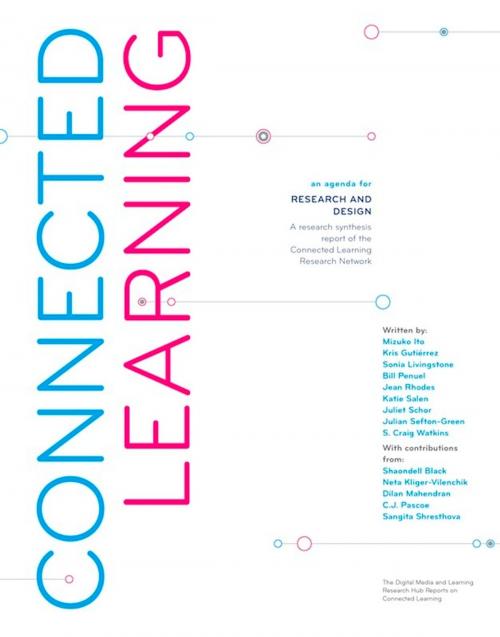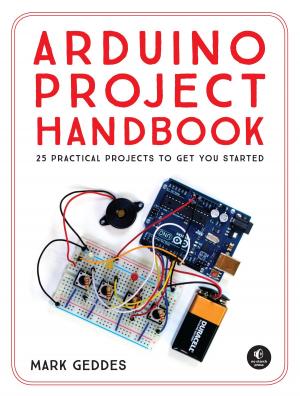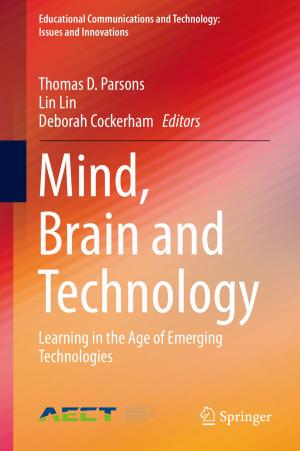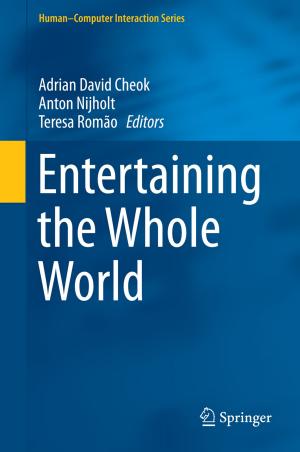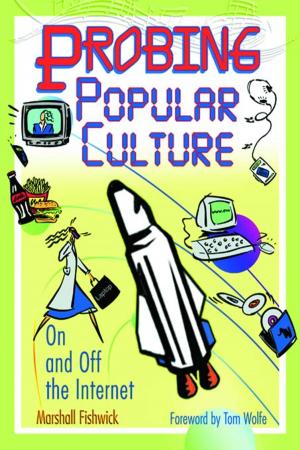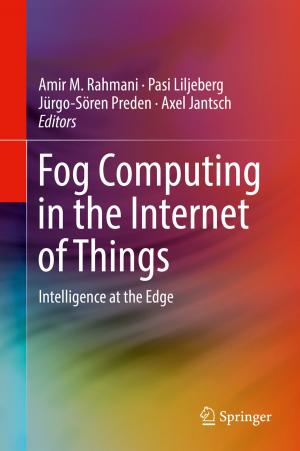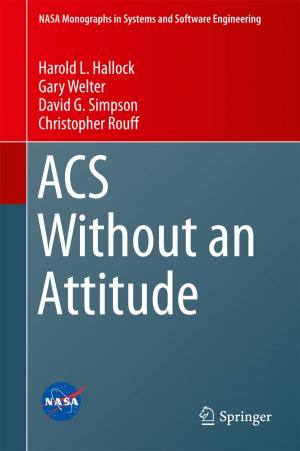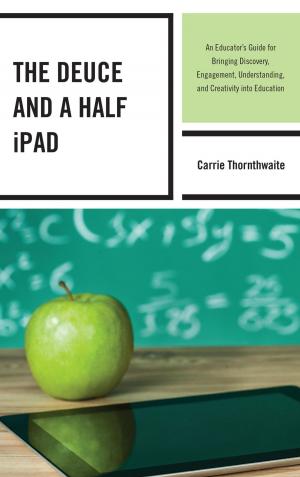Connected Learning: An Agenda for Research and Design
Nonfiction, Reference & Language, Education & Teaching, Teaching, Computers & Technology| Author: | Mizuko Ito, Kris Gutiérrez, Sonia Livingstone, Bill Penuel, Jean Rhodes, Katie Salen, Juliet Schor, Julian Sefton-Green, S. Craig Watkins | ISBN: | 9780988725508 |
| Publisher: | Digital Media and Learning Research Hub | Publication: | January 14, 2013 |
| Imprint: | Language: | English |
| Author: | Mizuko Ito, Kris Gutiérrez, Sonia Livingstone, Bill Penuel, Jean Rhodes, Katie Salen, Juliet Schor, Julian Sefton-Green, S. Craig Watkins |
| ISBN: | 9780988725508 |
| Publisher: | Digital Media and Learning Research Hub |
| Publication: | January 14, 2013 |
| Imprint: | |
| Language: | English |
This report is a synthesis of ongoing research, design, and implementation of an approach to education called “connected learning.” It advocates for broadened access to learning that is socially embedded, interest-driven, and oriented toward educational, economic, or political opportunity. Connected learning is realized when a young person is able to pursue a personal interest or passion with the support of friends and caring adults, and is in turn able to link this learning and interest to academic achievement, career success or civic engagement. This model is based on evidence that the most resilient, adaptive, and effective learning involves individual interest as well as social support to overcome adversity and provide recognition. This report investigates how we can use new media to foster the growth and sustenance of environments that support connected learning in a broad-based and equitable way. This report also offers a design and reform agenda, grounded in a rich understanding of child development and learning, to promote and test connected learning theories. The research is conducted as part of the Connected Learning Research Network, supported by the MacArthur Foundation’s Digital Media and Learning initiative. The research network is an interdisciplinary collaboration among researchers, designers, and practitioners to advance an evidence-driven approach to learning, the design of learning environments, and educational reform that addresses contemporary problems of educational equity.
This report is a synthesis of ongoing research, design, and implementation of an approach to education called “connected learning.” It advocates for broadened access to learning that is socially embedded, interest-driven, and oriented toward educational, economic, or political opportunity. Connected learning is realized when a young person is able to pursue a personal interest or passion with the support of friends and caring adults, and is in turn able to link this learning and interest to academic achievement, career success or civic engagement. This model is based on evidence that the most resilient, adaptive, and effective learning involves individual interest as well as social support to overcome adversity and provide recognition. This report investigates how we can use new media to foster the growth and sustenance of environments that support connected learning in a broad-based and equitable way. This report also offers a design and reform agenda, grounded in a rich understanding of child development and learning, to promote and test connected learning theories. The research is conducted as part of the Connected Learning Research Network, supported by the MacArthur Foundation’s Digital Media and Learning initiative. The research network is an interdisciplinary collaboration among researchers, designers, and practitioners to advance an evidence-driven approach to learning, the design of learning environments, and educational reform that addresses contemporary problems of educational equity.
